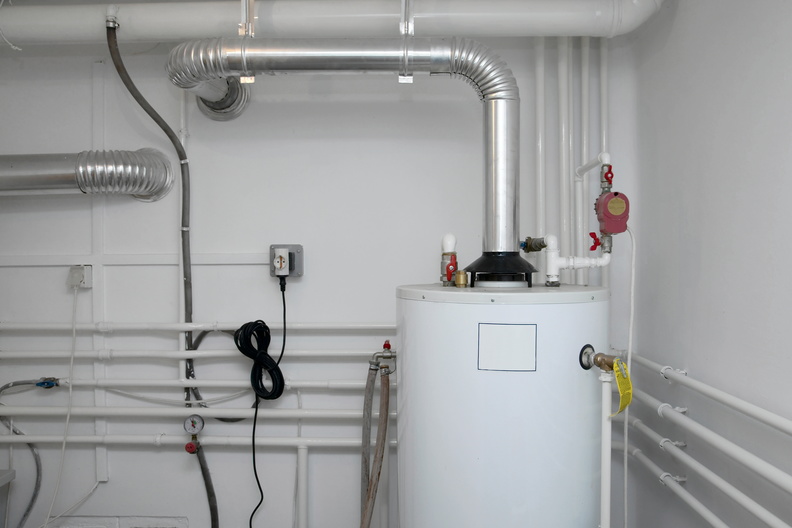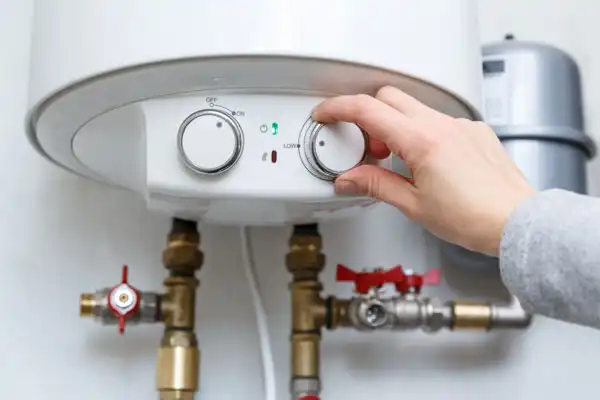Replacing your boiler isn’t just about swapping one system for another. It’s a home investment that impacts your comfort, energy use, and peace of mind.
If you’re a Rhode Island homeowner thinking about a new boiler, understanding what drives the cost will help you plan smarter and avoid surprises.
Let’s break down the main factors that influence the cost of a new boiler and how you can make a confident decision for your home.
What Factors Influence the Cost of a New Boiler?
The cost of installing a new boiler depends on multiple variables, some you can control, and others you can’t. From the type of fuel you choose to how complex the installation is, each factor plays a part in the final bill.
Key Takeaways
- The cost of a new boiler depends on fuel type, system size, and home efficiency.
- In Rhode Island, older homes and cold winters often affect installation complexity.
- Efficiency rating and brand choice influence long-term savings.
- Quality installation prevents future repair or energy costs.
- Partnering with a trusted provider like Acorn Oil ensures reliable results—Book boiler repair, replacement, and installation service.
Fuel Type (Oil, Gas, or Electric)
Your boiler’s fuel source is the biggest cost driver.
- Oil boilers are still common in Rhode Island, especially in older homes. They require an oil tank, which adds to setup complexity but provides strong heating power for cold winters.
- Gas boilers are often cleaner and easier to maintain, but require a gas line connection. Homes without existing natural gas service may need costly infrastructure work.
- Electric boilers offer a simpler installation but might increase monthly utility costs depending on your energy rates.
Every new boiler includes a pressure gauge, typically located on the front panel. If your system consistently drops below the recommended level, it may signal a deeper issue that should be addressed promptly—especially if you’re considering services like boiler replacement and installation in barrington to prevent the problem from worsening.
Boiler Size and Home Heating Load

Your home’s size, insulation, and layout determine how powerful your boiler needs to be.
A small, well-insulated home might only need a compact unit, while a large or drafty property will require more heating capacity. Oversizing wastes money upfront and energy later, while undersizing leaves your home cold and inefficient.
Rhode Island homes—especially older ones—often need careful load calculations to find the right balance. A professional installer can assess your square footage, ceiling height, and insulation before recommending an appropriately sized system.
Efficiency and Equipment Quality
Boiler efficiency is measured by AFUE (Annual Fuel Utilization Efficiency). A higher AFUE rating means less fuel wasted and more heat delivered to your home.
High-efficiency units cost more upfront but save energy every winter. For example, a 95% AFUE boiler converts nearly all its fuel into heat, while an older 80% model wastes a fifth of it through exhaust.
Beyond efficiency, brand reputation and build quality also matter. Reliable equipment often comes with better support and a longer lifespan—offsetting the higher purchase price over time.
Installation Complexity and Home Infrastructure
No two homes are exactly alike, and that can make installation costs vary widely.
If your home already has compatible piping, venting, and wiring, installation will likely be straightforward. But if you’re switching fuel types, adding a chimney liner, or removing an old tank, complexity—and labor—go up.
Rhode Island’s older housing stock often brings unique challenges like outdated venting or tight basement spaces. A professional inspection helps identify potential issues before installation begins, saving time and hassle later.
Simple rule: the smoother your infrastructure, the easier and faster your boiler installation.
Labor, Local Market, and Timing
Labor rates vary depending on location and season. In Rhode Island, labor availability can tighten during peak winter months when heating calls spike.
Scheduling installation during spring or fall may mean more flexibility and faster service. Choosing a local expert familiar with state codes and coastal conditions ensures a job done right the first time.
Always request multiple quotes and check references before hiring a contractor. A skilled technician can help you avoid long-term repair costs and performance issues.
Home Condition, Insulation, and Additional Upgrades
Your boiler doesn’t work in isolation—it’s part of your home’s overall energy system.
If your insulation is outdated or your windows leak heat, your new boiler will have to work harder to maintain comfort. That not only increases operating costs but also shortens equipment life.
Before installation, consider improving insulation, sealing drafts, or upgrading your thermostat. These simple improvements can reduce your heating load and help your boiler perform at its best.
Warranty, Brand Choice, and Future Costs
Choosing a reputable brand often comes with benefits like stronger warranties and better parts availability.
A longer warranty means peace of mind and potential savings on repairs. It also signals that the manufacturer stands behind its product.
While top-tier brands may cost more initially, they tend to offer better reliability and energy efficiency over time. When you factor in fewer service calls and smoother performance, it’s usually worth it.
How Much Does It Cost to Install a New Boiler in Rhode Island?

There’s no universal number because every home and system is different.
Boiler costs depend on factors like system size, efficiency rating, and labor complexity. The best way to estimate is by booking a professional assessment with a local expert who can evaluate your home and recommend the right setup.
For Rhode Island homeowners, Acorn Oil provides complete support—from inspection to boiler installation—ensuring your system runs efficiently for years.
Frequently Asked Questions
1. How much does it cost to install a new boiler in Rhode Island?
It varies depending on system type, home size, and installation needs. Get a custom quote from a local expert like Acorn Oil.
2. Does boiler size affect the cost of a new boiler?
Yes, larger boilers typically cost more to buy and install due to higher capacity and material requirements.
3. Is it cheaper to install a high-efficiency boiler?
High-efficiency units cost more upfront but save money on fuel bills long-term.
4. When should I replace my boiler instead of repairing it?
If your boiler is over 15 years old or frequently breaks down, replacement often makes more sense than repeated repairs.
5. What fuel type is best for a Rhode Island home?
Oil and gas boilers are the most common. The right choice depends on your current setup and heating needs.
6. Can I reuse my old boiler’s pipework?
Sometimes, but your installer must inspect for compatibility and safety before reusing existing lines.
7. Do I need permits to install a new boiler?
Yes, most installations require permits and inspections, especially when changing fuel types or venting systems.
Conclusion
Replacing your boiler is a significant decision, but understanding the cost factors helps you plan confidently.
Fuel type, efficiency, and installation complexity all play major roles in what you’ll spend and how well your system performs.
For Rhode Island homeowners, partnering with a trusted local provider makes all the difference.
Acorn Oil specializes in boiler repair, replacement, and installation across the state. Visit acornoil.com to schedule your service and keep your home warm and efficient all winter.